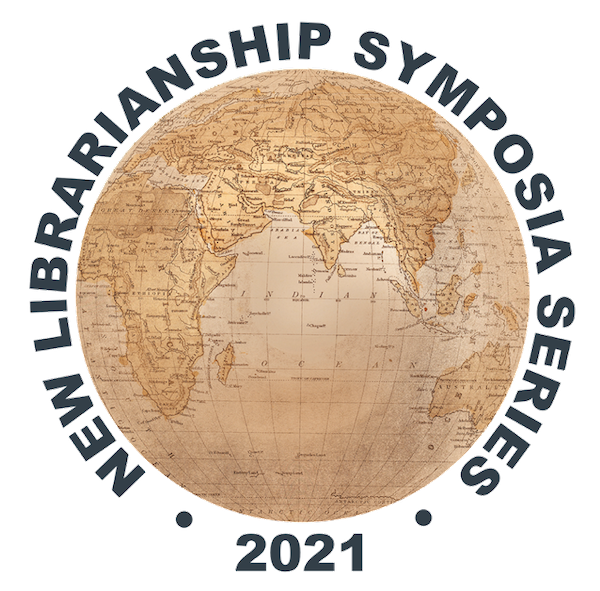Doing Justice to Language in the Library: Beyond Signage and Collections
Submission Type
Paper Abstract Submission
Symposium Selection
Equity, diversity, and inclusion
Keywords
libraries, multilingualism, applied linguistics, language, linguistic diversity, linguistic justice
Abstract
Although there have been numerous contributions to the library field on topics such as whiteness, colonialism, and gender over the past decades, language remains understudied as a category of difference that intersects with these other aspects and guides library practice and development. While there are many studies that touch on languages and multilingualism indirectly, there are fewer that explicitly foreground them, and despite ongoing discussions about linguistic diversity and discrimination in areas such as higher education (Clements & Petray, 2021), scholarly communications (Helsinki Initiative, 2019), and the public sphere (Piller, 2016), the role of libraries in these conversations has been largely lacking. One reason may be the historical and current roles of libraries in cultural and linguistic assimilation (Solis & Espinoza, 2021), but regardless of the exact causes, any discrimination on the basis of language runs counter to the inherent worth of all people, and the dominance of different languages in different contexts can create barriers to access and communication that inhibit the open sharing of knowledge and information.
Accordingly, the goals of this project are to articulate the roles of the library as a linguistic and language-learning space and to highlight language as a critical element affecting equity, diversity, inclusion, and access at the library. It will do so by synthesizing existing literature and initiatives on language, libraries, and social justice to create a framework in support of a more holistic and equitable approach towards these issues. As it will show, languages are also implicated in discourses of neutrality and international influence, and they deserve more consideration as libraries of all kinds provide services in an increasingly global, international, and mobile context.
By demonstrating how critical perspectives on linguistic ideologies, discrimination, and justice can enrich the unique strengths and settings of librarianship, this project invites researchers and workers alike to consider language as an aspect of equity, diversity, inclusion, and access that deserves to be addressed in novel and effective ways. Doing so will ensure that language learners and speakers of non-dominant languages, including staff, can feel welcomed, included, and represented by library services.
References
Clements, G., & Petray, M. J. (2021). Linguistic discrimination in U.S. higher education: Power, prejudice, impacts, and remedies. Routledge. https://doi.org/10.4324/9780367815103
Helsinki Initiative (2019). “Helsinki Initiative on Multilingualism in Scholarly Communication.” https://www.helsinki-initiative.org/
Piller, I. (2016). Linguistic diversity and social justice: An introduction to applied sociolinguistics. Oxford University Press. https://doi.org/10.1093/acprof:oso/9780199937240.001.0001
Solis, D. & Espinoza, J. (2021). Entre mundos y fronteras: An exploration of linguistic visibility and value in libraries. In A. Ndumu (Ed.), Borders and belonging: Critical examinations of library approaches toward immigrants. Library Juice Press.
Doing Justice to Language in the Library: Beyond Signage and Collections
Although there have been numerous contributions to the library field on topics such as whiteness, colonialism, and gender over the past decades, language remains understudied as a category of difference that intersects with these other aspects and guides library practice and development. While there are many studies that touch on languages and multilingualism indirectly, there are fewer that explicitly foreground them, and despite ongoing discussions about linguistic diversity and discrimination in areas such as higher education (Clements & Petray, 2021), scholarly communications (Helsinki Initiative, 2019), and the public sphere (Piller, 2016), the role of libraries in these conversations has been largely lacking. One reason may be the historical and current roles of libraries in cultural and linguistic assimilation (Solis & Espinoza, 2021), but regardless of the exact causes, any discrimination on the basis of language runs counter to the inherent worth of all people, and the dominance of different languages in different contexts can create barriers to access and communication that inhibit the open sharing of knowledge and information.
Accordingly, the goals of this project are to articulate the roles of the library as a linguistic and language-learning space and to highlight language as a critical element affecting equity, diversity, inclusion, and access at the library. It will do so by synthesizing existing literature and initiatives on language, libraries, and social justice to create a framework in support of a more holistic and equitable approach towards these issues. As it will show, languages are also implicated in discourses of neutrality and international influence, and they deserve more consideration as libraries of all kinds provide services in an increasingly global, international, and mobile context.
By demonstrating how critical perspectives on linguistic ideologies, discrimination, and justice can enrich the unique strengths and settings of librarianship, this project invites researchers and workers alike to consider language as an aspect of equity, diversity, inclusion, and access that deserves to be addressed in novel and effective ways. Doing so will ensure that language learners and speakers of non-dominant languages, including staff, can feel welcomed, included, and represented by library services.
References
Clements, G., & Petray, M. J. (2021). Linguistic discrimination in U.S. higher education: Power, prejudice, impacts, and remedies. Routledge. https://doi.org/10.4324/9780367815103
Helsinki Initiative (2019). “Helsinki Initiative on Multilingualism in Scholarly Communication.” https://www.helsinki-initiative.org/
Piller, I. (2016). Linguistic diversity and social justice: An introduction to applied sociolinguistics. Oxford University Press. https://doi.org/10.1093/acprof:oso/9780199937240.001.0001
Solis, D. & Espinoza, J. (2021). Entre mundos y fronteras: An exploration of linguistic visibility and value in libraries. In A. Ndumu (Ed.), Borders and belonging: Critical examinations of library approaches toward immigrants. Library Juice Press.


